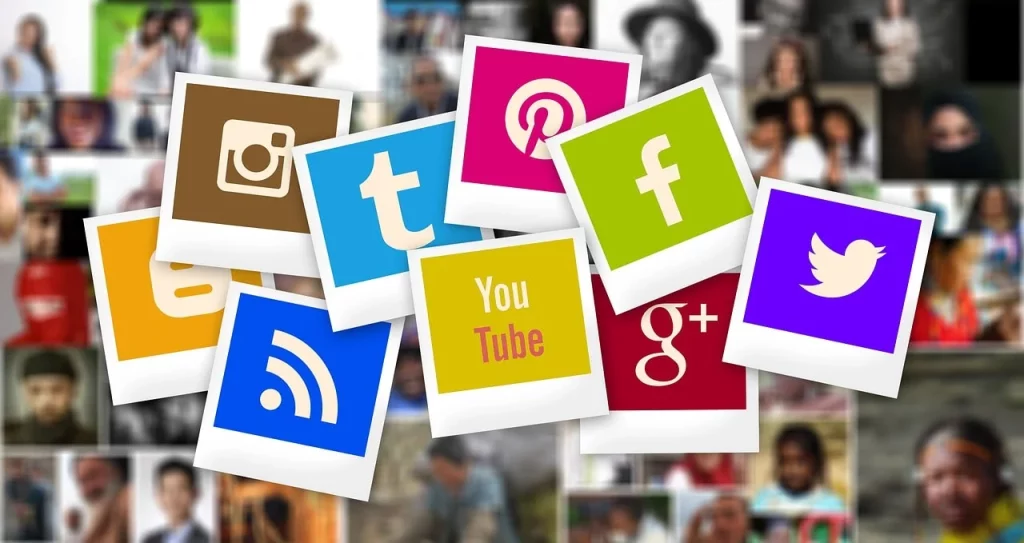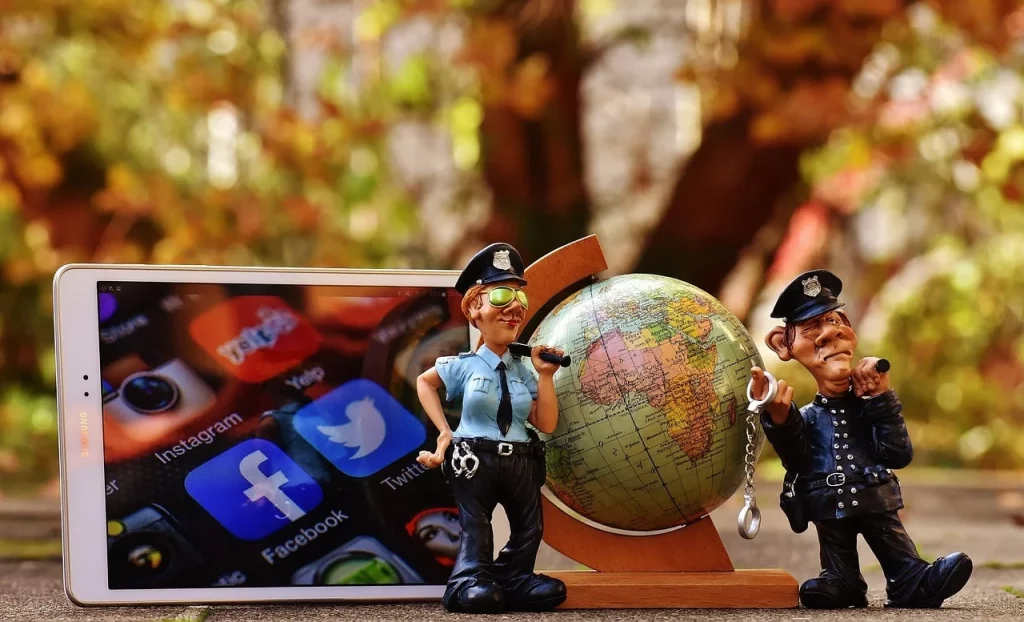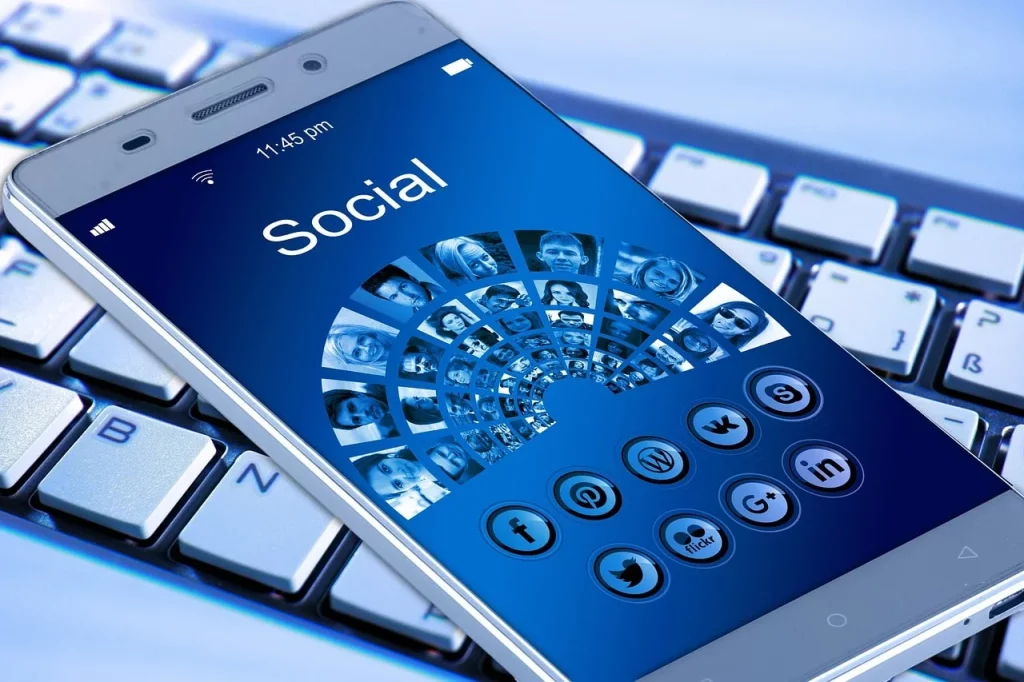In today’s digital age, social media has transformed from a mere communication tool into a global phenomenon that shapes cultures, politics, and businesses. Every click, like, and share tells a story, contributing to the vast digital tapestry that connects over half the world’s population.
But how much do we truly understand about the platforms we spend hours scrolling through? We are going to unveil some astonishing facts about social media, shedding light on their impact, trends, and the hidden mechanics that influence our daily lives. Are you ready to see social media in a whole new light?
Social media is changing the way we communicate and the way we are perceived, both positively and negatively. Every time you post a photo, or update your status, you are contributing to your own digital footprint and personal brand.
Amy Jo Martin
Social Media Facts
Ever wondered how many emojis are sent each day? The facts below will offer a deeper understanding of the social media ecosystem. Read carefully, because I created a quiz for you at the end of the article to prove your expertise.
- Individuals spend an average of 144 minutes daily engaging with online communities for social purposes.
- Every single day, over 500 million tweets are dispatched, translating to about 6,000 tweets every single second.
- On Instagram, more than 100 million photos and videos are shared daily.
- The group that is expanding the quickest on Facebook is individuals aged 65 and above, overturning the platform’s original youth-driven demographic.
- LinkedIn is responsible for directing more than half of all social media-driven traffic to B2B websites and blogs.
- Content that is visual is shared on social platforms 40 times more frequently than other types of content.
- YouTube sees over 1 billion hours of video watched daily, making it the leading platform for video content.
- In under five years, TikTok amassed 1 billion monthly active users, outpacing the growth of other platforms.
- Nearly 70% of marketers in North America use Instagram influencers for promotional activities.
- Daily, Facebook Stories attracts over 300 million active users, underscoring the popularity of ephemeral content.
- Google processes over 5 billion searches each day, with a significant number related to social topics.
- Message handling by WhatsApp and Facebook Messenger totals 60 billion messages a day, which is three times the volume of global SMS traffic.
- About 80% of Instagram’s audience follows at least one business, presenting significant marketing potential.

- Roughly 50% of the global population engages with social networks, evidencing their worldwide reach.
- The typical LinkedIn user spends around 17 minutes on the platform each month, highlighting its professional utility.
- Pinterest generates 33% more referral traffic to e-commerce sites than Facebook does.
- YouTube’s how-to content racks up over 100 million hours of views every day, reflecting a robust appetite for educational content.
- Snapchat reaches 90% of all 13-24-year-olds in the US, surpassing Facebook, Instagram, and Messenger combined.
- Since implementing its misinformation policy, Twitter has tagged over 11,000 posts as misleading.
- The quickest issue of a red card in football (soccer) was broadcast via a tweet seconds after it took place.
- More than 50% of Instagram’s users have found new products on the platform.
- A post from a well-known brand on Instagram can potentially reach up to 800 million users, depending on the brand’s follower count and engagement levels.
- Over 70% of the videos watched on YouTube are suggested by its recommendation algorithm.
- The most engaging LinkedIn articles have titles that are between 40-49 characters in length.
- Every day, Facebook users watch over 8 billion videos, highlighting the shift towards video content.
- The use of the hashtag on Twitter began in 2007, forever changing how we categorize content online.
- Women make up 58% of Instagram’s user base, indicating the platform’s broader appeal to female users.
- Facebook is visited by over 45% of all monthly social media users, making it the most visited platform.

- The average brand engagement rate on most social media platforms is below 0.1%, yet Instagram boasts rates exceeding 1%.
- Each month, more than 250 million people engage with Pinterest in search of inspiration and ideas.
- The “fail whale” error message became a notable symbol of Twitter’s early struggles with site downtime.
- The first video to grace YouTube was titled “Me at the zoo” and was uploaded on April 23, 2005.
- In 2012, Instagram was acquired by Facebook for $1 billion, a move that was seen as risky at the time but has since yielded substantial returns.
- The longest running Snapchat streak has surpassed 1,500 days, showcasing the app’s daily engagement capability.
- Facebook boasts over 2.3 billion monthly active users, establishing it as the most extensive social network worldwide.
- With over 1.2 million subreddits, Reddit is dubbed the “front page of the internet,” covering an extensive range of subjects.
- The idea of online socialization originated in 1997 with the launch of SixDegrees.com.
- Around 40% of consumers expect a response from brands on social media within the first hour of their inquiry.

- The typical Facebook user is linked to 100 pages, groups, and events.
- Over 85% of companies have teams dedicated to strategizing for social media marketing.
- Instagram Stories now boasts over 500 million daily users, eclipsing the entire Snapchat network.
- The advent of virtual reality on platforms like Facebook Spaces hints at a new era of online interaction.
- The first proposal via social media took place on Twitter in 2008.
- Since their launch in 2016, emoji reactions on Facebook have been used more than 300 billion times.
- An influencer marketing campaign can yield up to 11 times the return on investment compared to traditional forms of advertising.
- Initially, the “Like” button on Facebook was proposed to be called the “Awesome” button.
- “Twitch” was a contender for Twitter’s name before the founders decided on the current moniker.
- Internet users spend over 30% of their online time on social networks.
- The first photo posted on Instagram was of a dog located near a taco stand by Mike Krieger (co-founder) on July 16, 2010.
- Despite its global reach, Asia-Pacific accounts for nearly half of all social media users, underscoring the region’s significant impact on digital interactions.
Social Media Myths

Now that we’ve dived into the factual side of social media, it’s time to navigate the waters of myth and misconception. Strap in as we debunk common beliefs and separate the “likes” from the lies!
- Social Media Is Just for Young People
Social media platforms are enjoyed by people of all ages. It’s been observed that older generations are increasingly joining platforms like Facebook and Instagram, using them to connect with family and friends and to engage with content tailored to their interests. - Social Media Posts Reflect Real Life
What is posted often represents the highlights of someone’s life, not everyday reality. It’s common for individuals to share moments that are happy or significant, which can give a skewed perception of their actual life experiences. - Social Media Is Ruining Personal Relationships
While it’s true that excessive use can interfere with face-to-face interactions, it has also been instrumental in strengthening relationships. It allows people to stay connected with loved ones across long distances, and it can be a powerful tool for communication. - You Can’t Find Reliable Information on Social Media
Despite the presence of misinformation, social media can also be a valuable source of accurate information. Many reputable organizations and experts use these platforms to share knowledge and updates, making it important for users to consider the sources of the content they consume. - Social Media Is Completely Private
The notion of privacy can be misleading. Even with strict privacy settings, information can be shared or leaked beyond the intended audience. Users are encouraged to be mindful of what they share and to regularly review their privacy settings.
No products found.
Social Media Quotes

“Social media is a double-edged sword,” said Jane McGonigal, game designer. Let me share with you some more of my favorite quotes about social media. Feel free to share yours in the comments so I can add them to the list as well.
The goal of social media is to turn customers into a volunteer marketing army.
Jay Baer
Jay Baer highlights how social media transforms customers into active promoters of a brand through their voluntary efforts.
Social media is the ultimate equalizer. It gives a voice and a platform to anyone willing to engage.
Amy Jo Martin
Amy Jo Martin points out the democratizing power of social media, which allows anyone to share their thoughts and engage with a wide audience.
Social media allows big companies to act small again.
Jay Baer
Jay Baer discusses how social media enables large corporations to engage with their customers on a more personal, intimate level, as if they were small businesses.
Content doesn’t win. The connected customer does.
Brian Solis
Brian Solis shifts the focus from merely producing content to connecting and engaging with customers effectively on social media.
Social media is not a media. The key is to listen, engage, and build relationships.
David Alston
David Alston emphasizes the importance of interaction and relationship-building over broadcasting on social media.
Social Media FAQ

So, those thought-provoking quotes got you thinking, huh? Great! Now, let’s delve into some frequently asked questions. Pay close attention, as these answers will prove valuable for the upcoming quiz.
- Will social media die?
Not likely. They continue to evolve, adapting to new technologies and user behaviors. It’s more about transformation than extinction. As long as we crave connection and information, some form of social media will likely persist, albeit in new and innovative ways. - Why is social media bad for mental health?
They can be a double-edged sword. On one hand, it connects us; on the other, it can lead to feelings of inadequacy, anxiety, and depression. The constant comparison to others’ curated lives, along with the pressure to maintain a perfect online persona, can take a toll on our mental well-being. It’s important to balance online interactions with real-life connections and activities that nourish the soul. - How does social media affect relationships?
Social media can both strengthen and strain relationships. It allows us to stay in touch with friends and family around the world, but it can also lead to misunderstandings and jealousy. Overuse of social media might cause neglect in personal interactions, leading to feelings of disconnect. - Are social media influencers harmful to society?
Influencers have a complex role. They can inspire and motivate, but there’s a flip side. When influencers promote unrealistic standards of beauty, wealth, or lifestyle, it can foster unhealthy comparisons and expectations. The key is to follow those who promote positivity, authenticity, and meaningful messages that resonate with your values. - How does social media affect body image?
They often showcase idealized body types, leading many to struggle with body dissatisfaction and self-esteem issues. The relentless stream of ‘perfect‘ images can distort our perception of normal bodies, contributing to body image concerns and in some cases, eating disorders. Embracing a diverse range of body types and limiting exposure to accounts that make you feel less about yourself can help combat these negative effects.
No products found.
Social Media Quiz

Welcome to the ultimate social media quiz! Fail to answer a question right, and you’ll be sentenced to a week of only seeing cat memes in your feed. Not that it’s a bad thing…
Conclusion
Diving into the sea of social media facts, we’ve surfaced with a treasure trove of insights that reveal just how integral these platforms have become to our daily lives. Whether it’s shaping global discourse or connecting with a friend across the globe, social media holds a unique place in our modern world.
As we continue to like, share, and comment, let’s approach social media with curiosity, kindness, and a sense of humor. After all, it’s these human touches that make the digital world a richer place.
As always, let’s close this article with a funny question: If your life were a hashtag, what would it be and why? Let me know in the comments.
2 Sources Used For This ArticleSocial Media is the Ultimate Equalizer – Faiza Ghaffar


